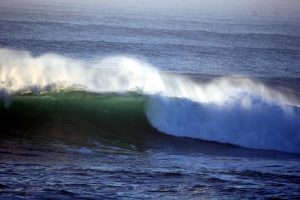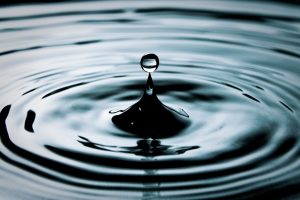Emerging Uses and Threats
The state’s marine environment currently hosts a variety of industrial coastal and marine uses, such as shipping, fishing, offshore oil production, power plants, and aquaculture. Several emerging industrial uses of the ocean are also now being proposed or expanded, in California including (1) desalination, (2) marine renewable energy development, and (3) offshore aquaculture. These industries often share infrastructure—provided by the state’s three major ports and a collection of smaller harbors—to maintain their facilities and to convey goods to other parts of the state, the rest of the nation, and worldwide.
California’s marine waters also host noncommercial uses that are important to society and significant contributors to the state’s economy, such as military training and research, surfing, boating, fishing, and swimming.
The demand for the use of California’s marine environment is increasing, and there is a need to balance the existing uses of our ocean environment with potential new uses and to manage all uses to the mutual benefit of our economy and the preservation of a healthy ocean ecosystem. The OPC supports increasing the availability of scientific and geospatial information and analysis tools useful for informing planning and regulatory decisions related to existing and emerging ocean uses. These data and tools can minimize conflicts among ocean users as well as impacts to the marine environment.
Marine Renewable Energy
California has robust goals for both increasing renewable energy production and protecting the state’s coastal and ocean resources. Marine renewable energy includes technologies that harvest wave, tidal, offshore wind, and ocean thermal energy for both small scale and commercial energy production.In California, these industries as well as their permitting process and regulations are still in a nascent development stage; however, manufacturers and developers have a strong interest in pursuing demonstration and larger scale marine renewable energy projects within and adjacent to the state’s waters. Facilitation of this will require greater clarity and predictability in the state’s regulatory and permitting framework to pursue permits for installations.
The OPC established and chairs the California Marine Renewable Energy Working Group. Through this group, the OPC focuses on policy actions needed to address regulatory overlaps and inconsistencies both at the state and federal level, including the development of formal agreements, such as MOUs, when appropriate. The OPC also seeks to improve access to geospatial data and other scientific information that is useful for reducing conflicts between existing uses of the ocean and these emerging developments and evaluating cumulative impacts of siting and planning decisions as part of its efforts to implement AB 2125.
Initiatives
- The California Marine Renewable Energy Working Group
- California Permitting Guidance for Ocean Renewable Energy Test and Pilot Projects
- Ocean Renewable Energy Resolutionrecommending that the California Energy Commission adopt an ocean renewable energy policy for inclusion in the 2012 Integrated Energy Policy Report (IEPR) update
- Memorandum of Understanding between California agencies and the Federal Energy Regulatory Commission
Funded Projects
Desalination
Current drought conditions in California have posed extraordinary pressure on water demands from existing water supplies. The State’s current recommendation is that desalination should be considered a future water source where it is economically and environmentally appropriate, and as an element of a balanced water supply portfolio that also includes conservation and water recycling to the maximum extent practicable. The OPC plays an immediate role as facilitator of inter-agency communication regarding best practices as facilities, and their respective technologies, are considered.
For more information: https://opc.ca.gov/desal/
Offshore Aquaculture
The state’s mission and objectives with respect to aquaculture are outlined in the Aquaculture Development Act (CA PRC § 825-830, 1979), which states: it is in the interest of the people of the state that the practice of aquaculture be encouraged in order to augment food supplies, expand employment, promote economic activity, increase native fish stocks, enhance commercial and recreational fishing, and protect and better use the land and water resources of the state.
The Sustainable Oceans Act (SB 201, Simitian, 2005) specifically addressed marine finfish aquaculture in ocean waters by developing certain standards for the California Fish and Game Commission to follow for new regulations and leases. Through proper citing and best management practices, these standards avoid or minimize impacts to fishing, other important uses, public trust values, and the marine environment.
The OPC supports the California Department of Fish and Wildlife in developing a marine aquaculture programmatic environmental impact report (PEIR) that will provide a forward-looking, scientifically-robust framework to regulate current and future offshore aquaculture facilities. The OPC also supports state coordination regarding emerging aquaculture operations in adjacent federal waters to promote sustainable aquaculture operations consistent with the OPC’s mandate to protect California’s ocean ecosystems.
For the most recent updates on California’s aquaculture industry, please visit: Aquaculture Matters and the Marine Region Aquaculture Site.
Funded Projects



